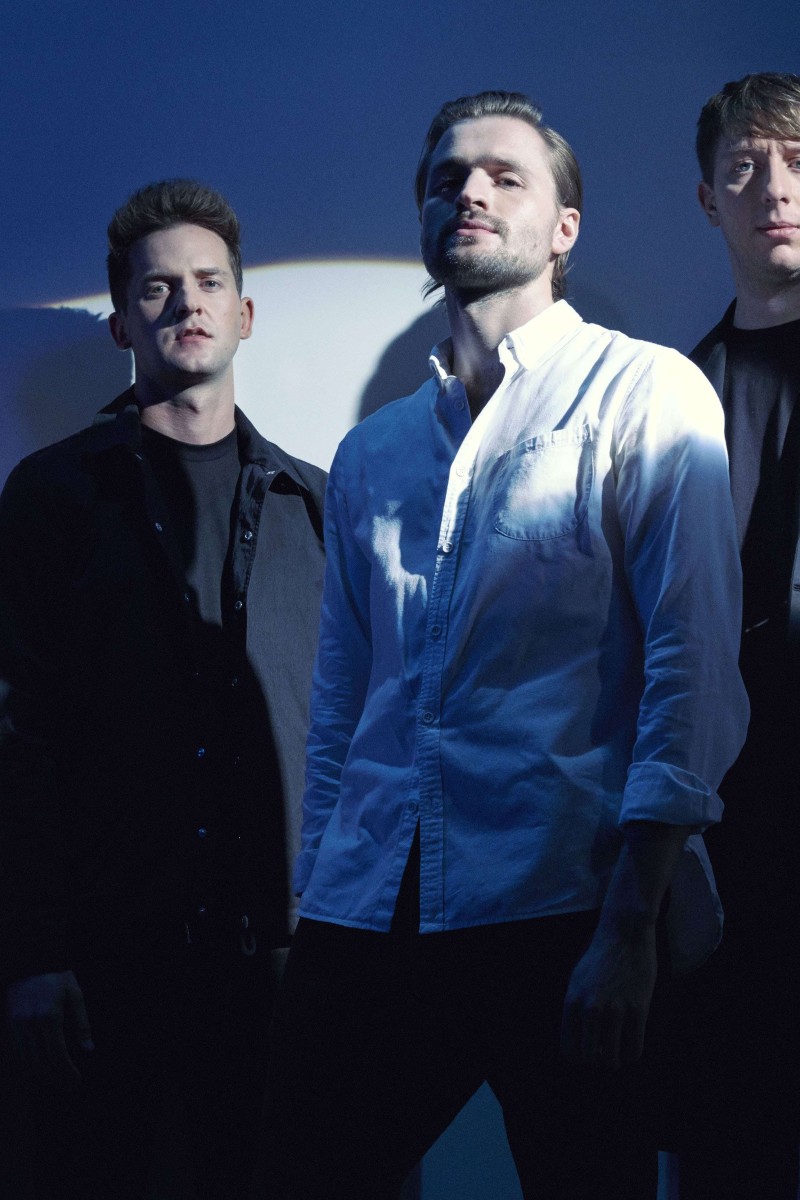
Indie rockers Wild Beasts talk about new album Boy King and why wombats won't be found in their lyrics
The British band hopes to combine rock's aggression with the groove of pop on the latest release
 From left: Singer/bassist Tom Fleming, Guitarist Ben Little, singer/guitarist Hayden Thorpe, drummer Chris Talbot.
From left: Singer/bassist Tom Fleming, Guitarist Ben Little, singer/guitarist Hayden Thorpe, drummer Chris Talbot.On their new album Boy King, British indie rockers Wild Beasts are animals captured at their most aggressive and free-form. Bassist and singer Tom Fleming chatted to Young Post on a rare day off from a whirlwind few weeks.
What have the last few weeks been like?
It’s been awesome. The album came out in the UK and the US – we were there for release. We did live radio, playing in a record store in London on the day, and went to New York two days later to play a show and do radio stuff.
Whenever you put the record out, there’s always a “getting to know you” period. Even if you work quickly, records take ages to come out. It makes a big difference to get in front of people and put a face to a name.
The songs are strong on their own, but the album also benefits from being listened to from start to finish. Did you set out to make it more of a listening experience, or more a collection of singles?
We tried to make it satisfying to sit down and listen to. But equally, we have to hit people between the eyes.
We’ve been around a long time. We had to stick our necks out and do something different, have some songs that would really grab people’s attention. We always go for that, but this is the first time we designed it this way. That’s definitely something we were mindful of. I’d been listening to albums by the likes of Michael Jackson and Def Leppard – albums with 10 singles. There is still a vein of that pop efficiency.
What was it like recording in Dallas?
It was a great experience. You could be anywhere when you’re in the studio working, but the American approach to things really rubbed off on us. John Congleton [the music producer who has worked with everyone from the likes of R Kelly to Sigur Ros] was great; his attitude was “work quickly, ask questions later.” It was an adventure being far away from home. The stakes felt high, knowing John has made a lot of great records and has won Grammys for them. He’s the sort of guy who has a Grammy in his bathroom and has black metal posters up in his library. I don’t know if you’ve listened to any black metal, but it all sounds rubbish and that’s the point. He’s a producer – his technique is impeccable – but that’s not what it’s about. It’s about making these records no matter what they sound like. And that’s amazing. I think a lot of people get bogged down in technique, especially these days when every musician is able to produce their own records. It’s more about what you bring as a musician, rather than a technician.
Were there any tracks that didn’t make the cut?
There’s a bonus track at the end of the album: we were going to split it up into 10 sections, but went for one, 25-minute-long track. There are lots of fragments on there that never quite became songs; good ideas that never came to be something bigger. We wanted to keep it short and sharp. The whole point of the record is “get in and get out”.
Which of the album’s tracks will you change most when you play them live?
We try not to change them too much. We’re pretty much playing studio versions. Generally speaking, it’s pretty much as you hear it [on record] with a few production bells and whistles missing. There’s a bit more, maybe, guitar when it comes to the solos – there’s a lot more you can do with those.
The sound of Boy King contrasts sharply with some earlier songs. Does this affect how you create setlists – like tracks jarring if you play them together?
[It has to] I think. Though it’s early days – as we’ve only played a handful of shows. This record’s so loud and aggressive that it could swamp the more delicate songs. Like putting Tough Guy next to a song like Lion’s Share [from their third album, Smother]. We just have to be a bit clever about what we play when.
We might not play some songs on this tour, but that doesn’t mean we won’t play them ever again.
Have you been happy with the reviews?
This is actually the first time I’ve tried not to read everything. When I was younger, I used to listen to music in the same way a critic would. I thought about the greater themes before thinking about everything else.
With this record, I’ve just enjoyed the physical noise-making aspect: act first, think later. I hope the record sounds that way. It’s been a more divisive record than I realised – I thought people would get it straight away. A lot of people do, but not everyone does.
Hayden did a feature with The Quietus where he picked the albums that influenced Boy King. What are yours?
The role I assign myself is kind of ‘the rock guy’, so the whole thing about going to America was about making our Sunset Strip record in some ways. Like, this working class British guy going to America making a process-heavy rock record, trying to outdo the Americans. There was something in that I found to be very inspiring and fun. I’m not saying it’s a Van Halen record, but those sounds and attitude definitely featured.
On Celestial Creatures, Hayden sings a really long “Woohoo”. It’s amazing, because it’s so theatrical and flamboyant but also really hilarious on this very weighty song.
Oh that’s great. Well this is it: I think it’s one of those things where we almost don’t know we’re doing it. We decide to ad-lib it and it produces something like that. There’s a certain weight to it, a certain sadness and anger to the record. But it’s also a lot of fun, there’s a bit of satire. All this stuff going on on what is essentially a party record.
Were there moments in the studio where you couldn’t carry on because you were laughing too much?
There were definitely points where we were peeing ourselves laughing. But it didn’t stop us from carrying on. It was like, ‘Yeah! More of that! More of that!’ At the end of Big Cat, for example, there’s a really off-kilter guitar played really badly. That was John’s encouragement ... I tried to play it well, and he was going ‘no, we need it to sound a lot worse.’ And I was just like, ‘Really??!’ And it was awesome – exactly what it needed. There was a lot of one-take stuff. That’s what it should feel like: a band making a racket.
At first listen, the Big Cat lyrics sound like, “Big carrot top/Come and show me what you’ve got.” Have you ever heard any other good misheard lyrics?
[Laughs] Oh my God! Some of them absolutely astound me. For example, on Bed of Nails, a track from the album Smother, there was a debate over whether the lyrics were “Surround me like a wombat” [instead of “Surround me like a warm bath”]. The idea that we would write and commit to that lyric is astounding.
We print the lyrics in the booklet and on our website. That said, we have strong accents and speak quickly. I think the misheard lyrics are hilarious and very much our own fault.
